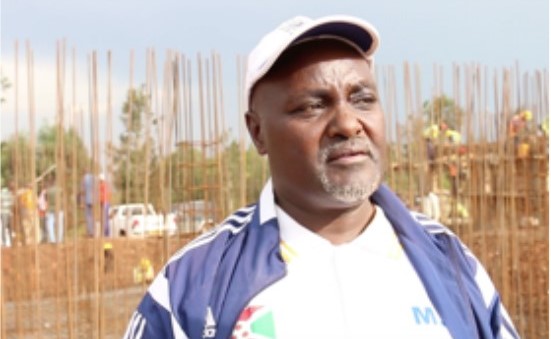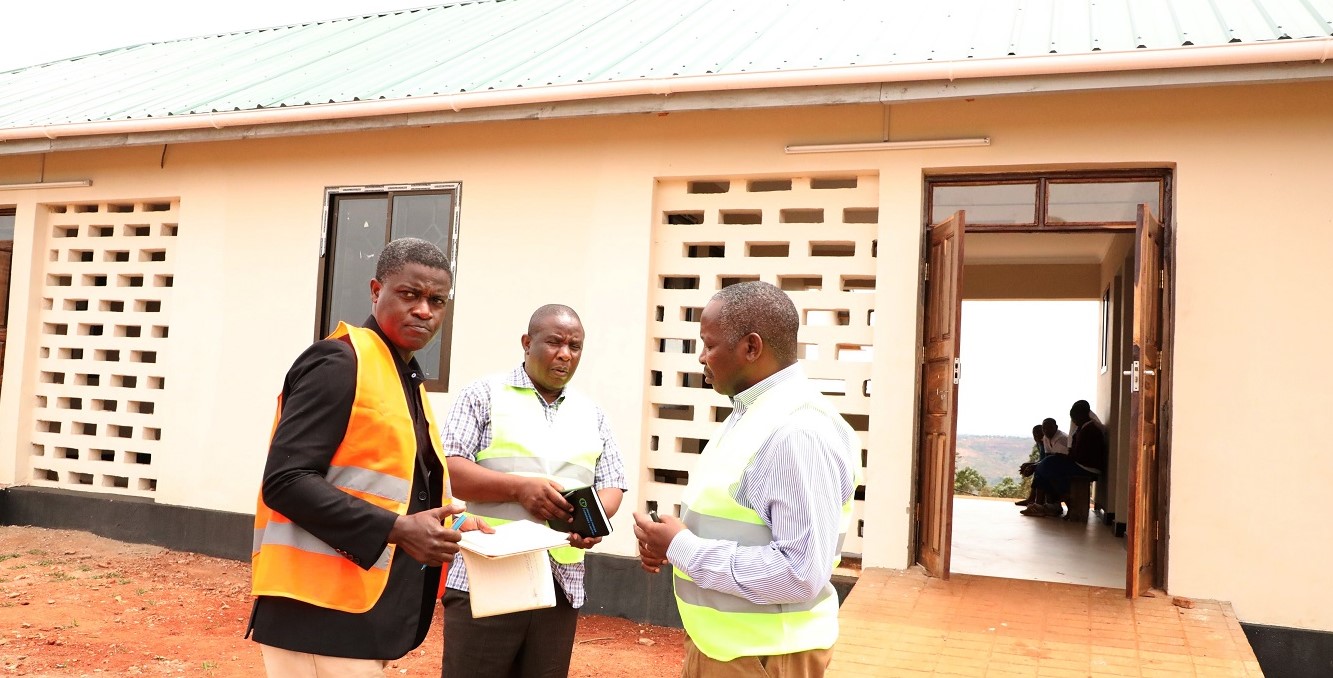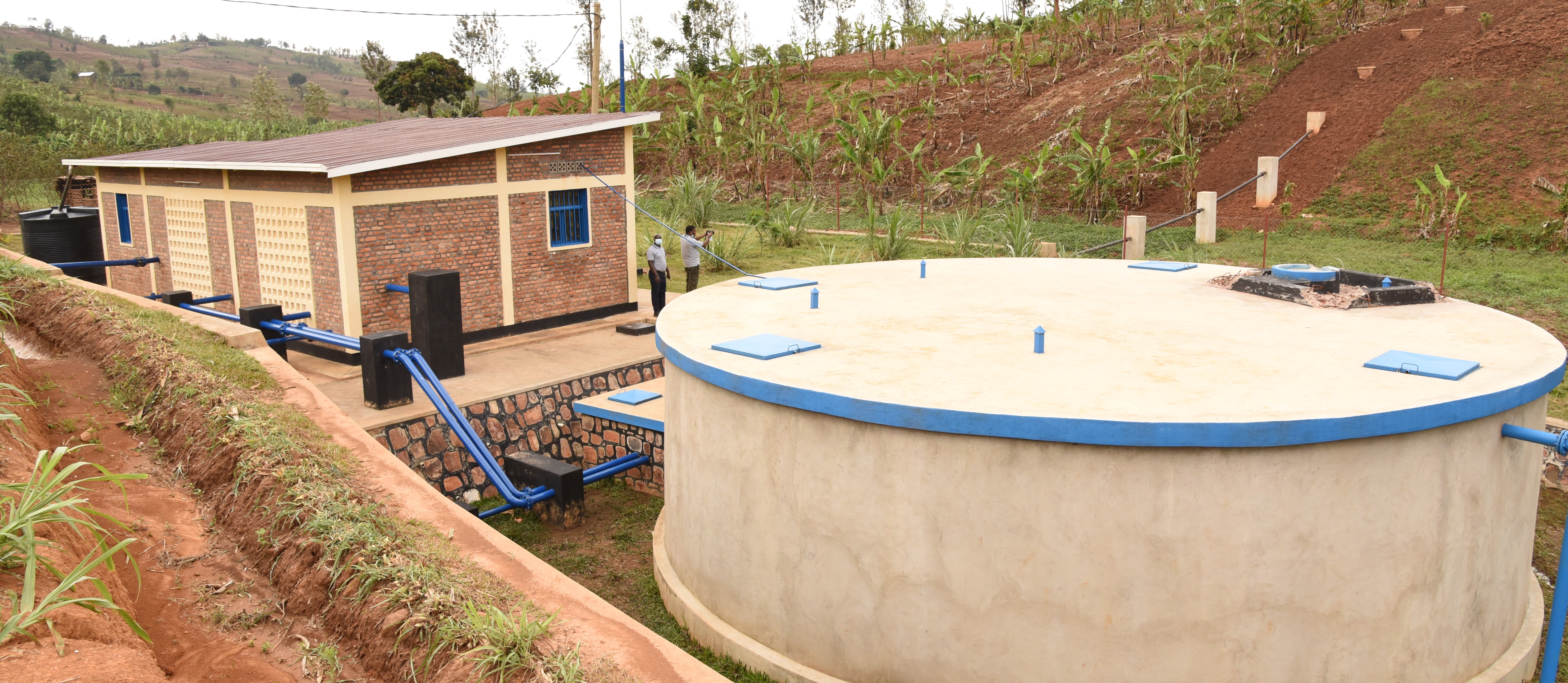RPCL Board and PSC Members Visit to the Local Area Development Programs
Members of the RPCL Board of Directors and Project Steering Committee visited the Local Area Development Program (LADP) from 28th to 30th Sep, 2020 to assess the progress of their social projects which are implemented by respective Shareholders’ local administration in Ngara District in Tanzania, Kirehe & Ngoma Districts in Rwanda and in Communes of Giteranyi (Muyinga) & Busoni (Kirundo) in Burundi. They also visited respective Transmission Lines and substations in Muyinga–Gitega (Burundi), in Bugesera-Shango (Rwanda), and Nyakanazi (Tanzania).
In addition to responding to the pressing need of electricity in our East-African region by constructing 80MW Power Plant, Rusumo Project also brought LADP to enhance regional economic and social development in the project area in Rwanda, Burundi and Tanzania as a way of giving back to communities surrounding the construction areas.
RPCL governance members for Burundi visited Murore Youth training Center, Gasenyi Health Center and Water supply rehabilitation in Busoni Commune in Kirundo Province on Tuesday 28th September 2020. The following day, Burundi RPCL Governance Team visited Bugoma Health Center, Ruzo Youth Training Center and Ruzo Soil protection along Akagera river as well as water supply rehabilitation and extension project in Giteranyi Commune of Muyinga Province. RPCL Burundi team was led by Eng. Nolasque Ndayihaye, Member of RPCL Board of Directors and also included Mr. Didace Ndericimpaye, RPCL Board Member, Eng. Aloys Sahiri and Eng. Come Nkurunziza, both being Project Steering Committee members.

“I am confident that both Ruzo (Giteranyi) and Murore (Busoni) vocational training centers will empower and educate young generations of Burundi through effective trainings that will enable them to find jobs or initiate businesses in their respective local communities”, says Eng. Nolasque Ndayihaye, Member of RPCL Board of Directors, Burundi
Burundi RPCL Board member, Eng. Nolasque Ndayihaye who was the team leader of the mission said that he is delighted to see LADP projects in Burundi have matured and will benefit Burundi citizens . “I am confident that both Ruzo (Giteranyi) and Murore (Busoni) vocational training centers will empower and educate young generations of Burundi through effective trainings that will enable them to find jobs or initiate businesses in their respective local communities”, he said.
Eng. Nolasque also urged the local leadership of Giteranyi and Busoni communes to speed up the process to equip the centers with suitable materials and improve the access roads to the training centers.
The team also visited the rehabilitation and extension of water supply systems, project for integrated agricultural production and livestock intensification for cows, goat and pigs as well as soil and water conservation. Burundi RPCL Team also visited Transmission Line project in Muyinga and Substations project in Gitega Province.
Tanzania RPCL Governance team visited LADP projects implemented in Ngara district. The visiting governance team was led by Eng. Innocent Luoga, RPCL Board of Directors’ member and included Eng. Salum Inegeja and Eng. Costa Rubagumya both members of the Project Steering Committee. They first paid a courtesy call to Ngara District commissioner who was so appreciative to the Tanzania government for the socio-economic development projects brought by Rusumo Project.
Speaking after the visit, the Team Leader, Eng. Innocent Luoga said that “apart from electricity, the project will benefit Tanzanians through various social projects which he said are in good stages of implementation”. He explained that social projects being implemented include social infrastructure for health, education, water, livestock and agriculture sectors.
"We have visited primary and secondary schools, clinics, health centers and water projects which are all being implemented here in Ngara and we are satisfied that for the most part it has reached a good stage and some of it has been completed”, he added.
Eng. Innocent Luoga explained the visiting team was satisfied by the progress made so far, but identify some challenges that are causing delays when surrounding communities urgently need those social facilities, especially, Rusumo Water Project which has recorded delay due to lack of building permits. He urged LADP implementers and local leadership to find solutions that will enable the projects to be completed on time.
Tanzania RPCL Governance members visited students in classrooms at Mumiterama Secondary School, in Ngara district, Kagera region built through LADP of Rusumo Project; they also called on residences of teachers and their administration blocks.

R-L: Eng. Costa Rubagumya in orange reflector, Eng.Salum Inegeja in the middle and Eng. Innocent Luoga, RPCL Board of Directors’ member in green reflector

Rwanda RPCL Governance team was led by Eng. Felix Gakuba, Member of RPCL Board of Directors, Eng. Tom Rwahama and Eng. Theoneste Higaniro, both members of the Project Steering Committee for Rwanda. The team visited LADP projects implemented in Kirehe District namely Kigina Health Center and the rehabilitation of 30km rural feeder road of Kigarama, Gasarabwayi and Cyagasenyi. In Ngoma District, the Rwanda RPCL governance team visited the 33km water supply system of Gituku-Murama, the 29.7km Gatonde-Gahima Water supply Project and the rehabilitation of 9.5 km Kigabiro – Rurenge –Gatore feeder road.
Eng. Felix Gakuba commended Ngoma District leadership for their well achieved water supply projects which he said “will improve the quality of life for Ngoma households; “this will reduce the daily burden of fetching water from far which most of the time falls on women and children”. He added, “I believe that local farmers in the surrounding will increase crop production and health and hygiene will improve in the vicinity”.
The water supply project came arose out of a need to quickly and effectively address the high levels of water scarcity in that area which is in tandem with the main goal of LADP: to improve community livelihoods and promote socially sustainable outcomes in the project area.


